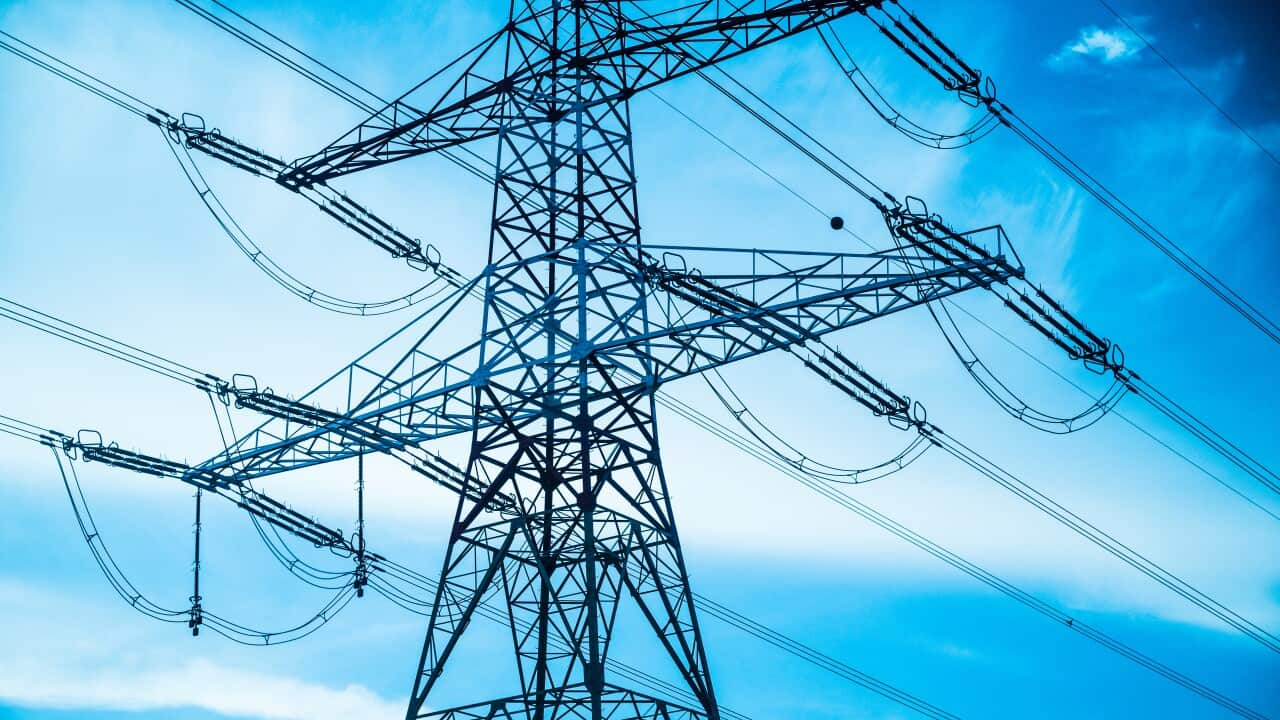You wouldn't expect a business to shut out customers or tell them to look elsewhere.
But that's exactly what's happening as Australian energy prices soar.
A number of smaller retailers, including ReAmped Energy and LPE, have told their customers to seek out better deals. They're also among a number of others, including Mojo Power, Discover Energy, and Nectr who have hit pause on accepting new business.
So, why are they doing this?
Rising prices
It comes against a backdrop of soaring wholesale energy prices, with the latest data from the Australian Energy Marker Operator (AEMO) showing that these were up 141 per cent in the first quarter of 2022 compared with last year.
Smaller retailers are particularly exposed to this because they do not have their own energy generators and have to purchase from the volatile wholesale market. Bigger names like Origin, AGL and EnergyAustralia have their own power-generating assets and also act as wholesalers.
But even the larger players aren't immune.
At present, there are a number of unscheduled outages at coal-fired power stations in Australia, and gas shortages due to the war in Ukraine amid increased winter demand for energy.
Australia exports the overwhelming majority of its gas, which means our prices are often reflective of the international market.
"Gas could normally fill in for coal, but it’s in short supply as much of it is contracted for export to Asia," said Roberto Aguilera, an energy economist at Curtin University.
"Some of those countries also are experiencing shortages and elevated prices on account of supply disruptions from Russia – gas markets around the world are interconnected, so when supply declines in one region, prices tend to rise everywhere."
Grattan Institute energy and climate change program director Tony Wood said gas is the alternative when coal-fired generators aren't running.
"Which means.. the price electricity goes up because gas is expensive," Mr Wood said.
Professor Ross Gordon, from the Queensland University of Technology's business school, smaller retailers are likely to be taking this unconventional approach of turning away business and encouraging customers to look elsewhere because they would struggle to pay higher wholesale costs while continuing to charge the retail prices they'd committed to.
They are also not able to trim their profit margins to the same extent as larger ones to avoid passing on the increased wholesale costs in full to their customers.
"They're essentially service organisations," Professor Gordon said.
"They don't generate or produce energy... they have to buy that energy at that market price from the companies that generate it; so there's not really much opportunity for them to change the price.
"There's only so much of their service provision margins that they can cut into... I think that the margins are probably less than 5 per cent."
ReAmped CEO Luke Blincoe told the Nine Network on Wednesday that Russia's invasion of Ukraine and the exposure of Australia's domestic gas market to global gas prices resulted in rocketing rises.
"The wholesale energy price is effectively set by the gas price and the Australian gas price has now effectively doubled with the global commodity price for gas," he said.
"We've seen a really, really steep incline. As late as the last seven days, it has really rocketed away. That's the driver of the energy prices."
Is there relief on the horizon?
The Australian Energy Regulator last week released its final determination for the 2022/23 "default market offer", which sets a safety net for electricity prices and the reference point for customers to shop around.
NSW residential customers on this offer will see an increase between 8.5 per cent and 18.3 per cent. It will be up to 9.5 per cent for those in South Australia, and up to 12.6 per cent for south-east Queensland customers.
Victoria's Essential Services Commission sets the state's default offer, and last week determined it would rise by 5 per cent.
Energy retailers can choose to charge less than default offers.
Mr Aguilera said there could be some wholesale price relief ahead.
"As the weather improves in the eastern states and the northern hemisphere, and as the global economy continues to slow, gas consumption should decline," he said.
Prime Minister Anthony Albanese said the government will look at every available option to keep a lid on rising gas prices, but a failure of energy policy and global pressures are making the task harder.
Mr Albanese says Labor argued for a domestic gas reserve which was ignored by the former government.
"The consequential, significant hike in global prices are beyond people's control but what was in the government's control is actually having an energy policy," Mr Albanese told the ABC on Friday.
"We had a lot of rhetoric from the former government about a gas-fired recovery year after year after year and no real policy changes were put in place."
Opposition leader Peter Dutton called the characterisation that the Liberal government didn't do enough, a complete rewrite of history.
Director of the Monash Energy Institute Professor Ariel Liebman said a gas reservation policy should be on the cards.
"The government should ... seriously consider a full gas reservation policy for the entire country, similar to the one in Western Australia and the United States," he said.
"We really need to switch to renewables as quickly as possible ... it's not just a case of flicking a switch and there are a lot of challenges that need to be addressed, but the sooner we do it, the sooner we’ll be protected from these prices and global markets."
Western Australia's reservation policy diverts 15 per cent of liquefied natural gas exports to the local market.
With additional reporting by AAP.










